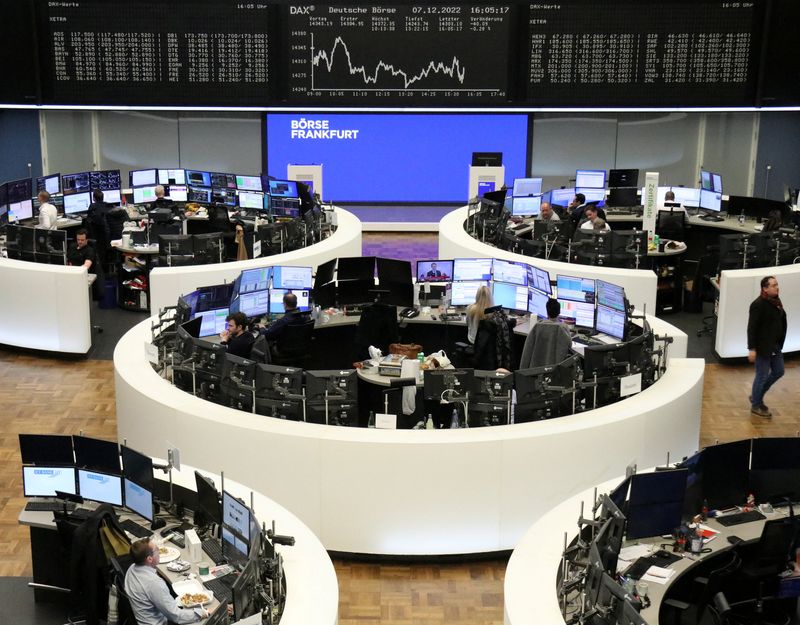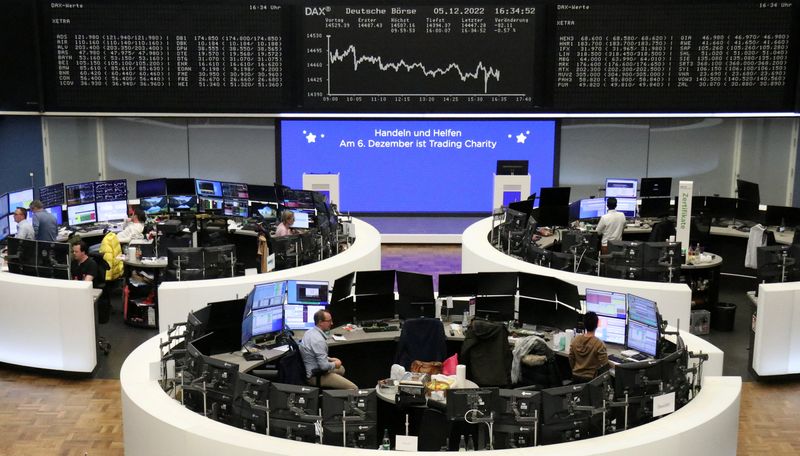By Amruta Khandekar and Bansari Mayur Kamdar
(Reuters) -European shares fell for a fourth straight session on Wednesday, with investors on edge as global recession fears grew, but losses were limited by gains in healthcare stocks.
The region-wide STOXX 600 closed 0.6% lower, taking cues from Wall Street declines overnight after big U.S. banks cautioned of a likely recession next year.
"There is a sense of nervousness and jitteriness in the markets today," said Victoria Scholar, head of investment at Interactive Investor, citing more volatility as the year-end approaches.
"Markets are not out of the woods yet with headwinds remaining from the gas crisis, inflation, monetary tightening and the threat of recession."
A recent stock rally driven by hopes of a less aggressive Federal Reserve has been tested in recent days after strong U.S. economic fuelled fears that the central bank could keep hiking interest rates for longer.
Markets now await a slew of interest rate decisions, including from the Fed and European Central Bank next week, for further clues on the direction of monetary policy.
On the pan-continent STOXX 600 index, energy stocks led declines, falling 2.0% as crude prices slid after U.S. data showed an unexpectedly large build in fuel stocks, feeding fears about demand in a market already spooked by an uncertain economy.
Banks fell for their third straight session, also weighing on the STOXX 600.
Euro zone government bond yields hit fresh multi-week lows amid conflicting signals about when inflation will peak.
A survey showed rising inflation expectations for the year ahead but expectations for three years ahead were unchanged at 3.0%, well above the ECB's 2% target.
Healthcare shares rose 0.7%. GSK Plc and Sanofi (NASDAQ:SNY) jumped 7.5% and 6.1% respectively, boosting the index after the drugmakers on Tuesday were spared thousands of U.S. lawsuits claiming that the heartburn drug Zantac caused cancer.

Airbus fell 2.2% as the world's largest planemaker abandoned a numerical forecast for jet deliveries and a date for its key production goal.
Euro zone gross domestic product grew slightly more than initial estimates, Eurostat data showed, with household spending and business investment propping up the economy.
